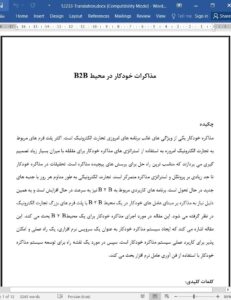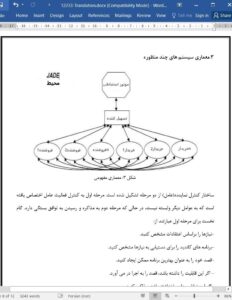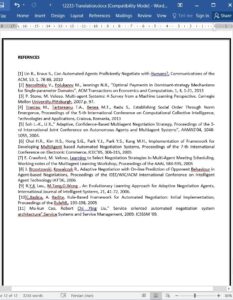Abstract
Automated negotiation is one of the predominant feature of present day e-commerce applications. Most of the ecommerce platforms are nowadays using automated negotiation strategies to deal with enormous amount of decision making to come to the most viable solutions to complex negotiation queries. The research in automated negotiation is focused largely on theory about negotiation protocol and strategy. E-commerce is constantly evolving with new aspects every day. B2B based ecommerce applications is also gaining speed and as such the requirement for automated agents based negotiation in a B2Benvironment is envisaged, by large sized ecommerce platforms. This paper discusses implementation of automated negotiation for a B2B environment. This paper points out that making the automated negotiation system as a software service is a feasible way for the practical application of the automated negotiation system. It then discusses a roadmap for the development of automated negotiation system using the software agent technology.
I. INTRODUCTION
Software agents and particularly multi-agent systems are emergent technology, expected to have a significant impact in realizing the vision of a globally spread and information rich services network to support dynamical discovery and interaction of digital enterprises. The agent paradigm is expected to give a boost to all e-business areas including e-commerce, logistics, marketing, manufacturing, tourism, negotiation etc. There are several organizations that have successfully implemented agent and have been successfully using the various agents models. Agents have been seen to be the next breakthrough in software development, resulting in multi-agent platforms and innovation in e-business applications. However, it is currently appreciated that agent technologies have not achieved yet that level of maturity as required by advanced e-business applications [10]. Many difficult research challenges remain to be dealt with and much work is needed to adapt relevant existing agent technologies to the requirements of the new generation of e-business systems. The objective of this paper is to find out main domains that can benefit from implementation of multi agent systems and to work out the basic model of the E-commerce Platform targeted at online trading, auction systems, e-markets and private trade exchanges.










